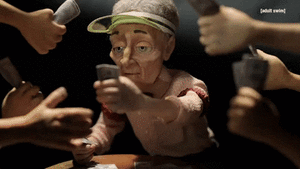Blog Information
- Posted By : UniqueThis
- Posted On : May 26, 2024
- Comments : 5
- Views : 405
- Category : Sports
- Description :
Overview
Sports, a realm where talent, hard work, and determination are meant to shine, can sometimes be tainted by the murky waters of corruption and rigging. While most athletes and organizations strive for fairness and integrity, the allure of financial gain, power, and fame has led some down a path of deceit. In this blog, we'll delve into how sports are rigged and explore the motivations behind such actions.
How Sports Are Rigged
-
Match Fixing
- Definition: Match fixing involves manipulating the outcome of a game to ensure a specific result, often for betting purposes.
- Methods: This can be done through bribing players, referees, or coaches to perform poorly, make deliberate errors, or influence decisions.
- Examples: The 2006 Italian football scandal, known as "Calciopoli," involved top Serie A clubs like Juventus influencing referee appointments to favor certain match outcomes.
-
Point Shaving
- Definition: Point shaving is a tactic where players intentionally keep the score within a certain range to benefit gamblers.
- Methods: Athletes might miss shots, commit fouls, or underperform in specific parts of the game.
- Examples: In 1951, several players from the City College of New York were implicated in a point-shaving scandal, which shocked the collegiate basketball world.
-
Doping and Performance Enhancing Drugs (PEDs)
- Definition: Using illegal substances to improve athletic performance.
- Methods: Athletes might use steroids, blood doping, or other drugs to gain an edge over their competitors.
- Examples: Lance Armstrong's admission to using PEDs after years of denial brought to light the extensive doping practices in professional cycling.
-
Referee Bias and Manipulation
- Definition: Referees or officials deliberately making calls that favor one team over another.
- Methods: This can involve biased officiating, overlooking fouls, or making unfair decisions.
- Examples: The 2002 NBA Western Conference Finals between the Los Angeles Lakers and the Sacramento Kings saw controversial officiating, leading to widespread allegations of bias.
Why Sports Are Rigged
-
Financial Gain
- Betting and Gambling: The global sports betting industry is worth billions of dollars. Rigging games can lead to significant financial windfalls for those involved.
- Sponsorships and Advertisements: Ensuring certain teams or athletes win can boost sponsorship deals and advertising revenues.
-
Power and Control
- Organizational Influence: Sports organizations or leagues might rig outcomes to maintain power dynamics or ensure the popularity of their sport.
- Political Motives: Governments or political entities might influence outcomes to boost national pride or political agendas.
-
Career Advancement and Security
- Job Security: Coaches or players might engage in rigging to secure their positions or avoid being fired.
- Reputation and Legacy: Ensuring victories can enhance the reputations and legacies of athletes, coaches, and teams.
-
Pressure from External Forces
- Fan Expectations: The immense pressure from fans and sponsors can drive individuals to rig games to meet high expectations.
- Criminal Organizations: Organized crime syndicates often manipulate sports outcomes for financial gain, using threats and coercion.
The Consequences
The repercussions of rigging sports are far-reaching and damaging. It undermines the integrity of the sport, erodes trust among fans, and tarnishes the reputations of those involved. Moreover, it can lead to legal consequences, financial penalties, and lifetime bans from the sport.
Combating Corruption in Sports
Efforts to combat corruption in sports are ongoing. Organizations like the World Anti-Doping Agency (WADA), the International Olympic Committee (IOC), and national sports bodies are working tirelessly to enforce strict regulations, conduct thorough investigations, and promote transparency.
- Education and Awareness: Raising awareness about the dangers and signs of corruption is crucial in preventing it.
- Whistleblower Protections: Encouraging and protecting whistleblowers can help uncover and address corrupt practices.
- Technological Advances: Using technology to monitor games, track betting patterns, and ensure transparency can help deter rigging.
Conclusion
While the majority of sports competitions remain fair and thrilling, the shadow of rigging and corruption still looms. Understanding how and why sports are rigged can help fans, athletes, and organizations remain vigilant and committed to preserving the true spirit of competition. By promoting transparency, enforcing strict regulations, and fostering a culture of integrity, we can hope to see a future where sports remain a testament to human excellence and fair play.
-
